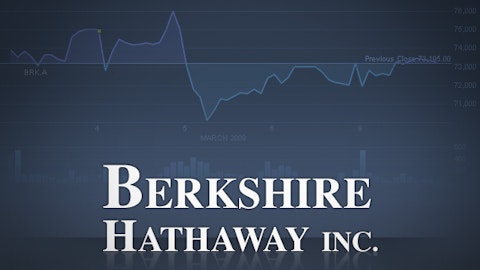May 2012 – Facebook Inc (NASDAQ:FB) was the most anticipated IPO in years, perhaps ever. Yet, a series of mishaps both on behalf of the company and the NASDAQ led to it being one of the disappointing IPOs in recent memory. Meanwhile, LinkedIn Corp (NYSE:LNKD), Facebook Inc (NASDAQ:FB)’s competitor, has produced one of the most successful post-IPO campaigns that we’ve seen. With that said, which of the two is Twitter most likely to follow?
Twitter preps for IPO
Last week, Twitter conveniently tweeted that it had submitted an S-1 to the SEC for a planned IPO. According to eMarketer – who provides fairly accurate technology research – Twitter is worth $10 billion to the private markets and will produce revenue of $580 million in 2013. However, recent reports suggest that Twitter’s expected market value could be north of $14 billion!

Understand the business cycle
The difference between Facebook Inc (NASDAQ:FB) and LinkedIn Corp (NYSE:LNKD)’s post-IPO performance has been analyzed, discussed, and publicized in such a way that there is nothing I can say that you don’t already know. Apparently, Facebook priced at $40 was too expensive, and LinkedIn Corp (NYSE:LNKD), at $45 was cheap.
However, to me there is one more piece of the puzzle, which is rarely mentioned, and that is a company’s stage in its business cycle.
For example, when LinkedIn Corp (NYSE:LNKD) became a public company, it had just over 100 million users and had produced $243 million of revenue in the year prior . Today, LinkedIn has 238 million users and has trailing 12 months revenue of $1.24 billion . Essentially, LinkedIn became a public company while in an aggressive growth period, and Wall Street has rewarded that growth with strong gains and a pricey valuation.
On the other hand, Facebook Inc (NASDAQ:FB) had annual revenue of $3.7 billion in the year before going public . Today, Facebook’s trailing 12 month revenue is $6.12 billion . Clearly, Facebook continues to grow, but its growth has not been as robust compared to LinkedIn, and Facebook went through a period where 35% top-line growth was expected .
Today, Facebook is surging with the emergence of mobile, but was still much later in its business cycle compared to LinkedIn. Looking back, companies that have performed the best post-IPO are those that were in aggressive growth phases of their business cycle.
Dwelling on the negatives
Twitter, with expected revenue of $580 million would post 100% growth over the prior year. However, the nature of valuing these Internet based companies leaves the door open for an extra amount of criticism.
Due to the growth of these companies, high valuations are awarded, but we often see analysts/investors dwell on negatives once a company becomes public. In regards to LinkedIn Corp (NYSE:LNKD), the only drawback at the time of its IPO was its valuation, as it was growing rapid and adding new users at an incredible rate. Facebook had problems with monetization, management mix ups, and concerns regarding innovation. Hence, this difference in sentiment also contributed to the performance of each stock.
Now, how does Twitter fit into this conversation? The answer lies in an AllThingsD piece, showing that Twitter’s growth is falling well below expectations. In particular, Twitter was expected to have 400 million monthly active users (MAUs) by the end of 2013 – after hitting 200 million in December 2012 – but Twitter currently has 240 million MAUs.
With a growth rate of about 4.5 million MAUs per month, Twitter is set to end the year with about 255 million users. Hence, this is far short of expectations, and suggests that the company will not be able to hit its $580 million revenue target for this year.
Now, if we want to dig deeper, then Twitter has a user base that is comparable to LinkedIn, but LinkedIn Corp (NYSE:LNKD) has twice as much revenue as Twitter is expected to create in 2013. Thus, Twitter is not monetizing its users effectively, and is seeing slowed growth. To me, this sounds almost reminiscent of Facebook following its IPO, and there are concerns that will no doubt come to light in the months ahead.
Final thoughts
If we look at Internet-based technology stocks that have performed the best since their IPOs, we see a familiar trend of companies having great growth after being public. Zillow Inc (NASDAQ:Z) has been one of the best performing IPOs, as it began trading at $20 and now sits at $100 .
While the company is very expensive at 22 times sales, it has grown revenue to $152 million over the last 12 months, compared to just $30.5 million in the year prior to going public . As a result, its outlook remains bright, and investors continue to buy at elevated levels.
Then, there are those such as Groupon Inc (NASDAQ:GRPN) that have fallen 50% despite having revenue growth of 50% since the year prior to its IPO. Clearly, this disconnect in stock performance shows the level of growth that is expected for Internet-based technology companies when awarded such lofty valuations.
In the case of both Groupon Inc (NASDAQ:GRPN) and Facebook Inc (NASDAQ:FB), shares have done quite well as of late, showing that once the hype died, and expectations lowered, such stocks often make good investments. Based on what we know, this is the group that Twitter will most likely join. There are simply too many questions about growth, users, and at 24 times 2013’s sales, Twitter will be the priciest of the bunch.
Thus, if you are considering an investment in Twitter following its IPO, then beware of the risks, and the catalysts that push such stocks lower. Because in the case of Twitter, there are many signs of future losses to come.
The article Which Social Media Stock Trend Will Twitter Follow? originally appeared on Fool.com and is written by Brian Nichols.
Brian Nichols owns Facebook. The Motley Fool recommends Facebook, LinkedIn, and Zillow. The Motley Fool owns shares of Facebook, LinkedIn, and Zillow.
Copyright © 1995 – 2013 The Motley Fool, LLC. All rights reserved. The Motley Fool has a disclosure policy.





